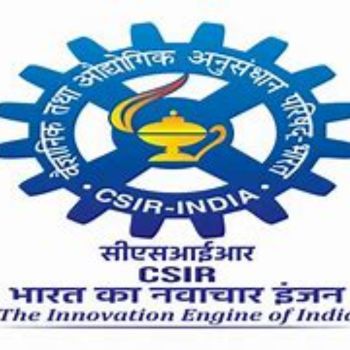Ph.D in Social Sciences is a doctoral-level program where students deeply study subjects like sociology, anthropology, political science, and economics. The course teaches to conduct research on a higher level, investigate social issues, and discover unique solutions that are able to assist society.
The eligibility criteria for the PhD in Social Science are that the candidate must have completed their master’s degree or a related field with a minimum of 55% marks from a recognized university. The admission to Ph.D Social Science is based on the valid entrance exam scores of the candidate. Students need to have valid entrance scores in exams like UGC NET/CSIR NET/GATE, etc.
The average course fees for the Ph D in Social Science is somewhere between INR 50,000 – INR 4,00,000, depending on the institute type. Some of the best universities offering the Ph D Social Science course are Jawaharlal Nehru University, TISS Mumbai, IIT Delhi, Banaras Hindu University, University of Delhi, and Jamia Millia Islamia.
After completing PhD in Social Sciences, graduates can pursue from the various roles such as Professor, Research Scienctist, Policy Analyst, Social Consultant, Market Research Analyst, or in Civil Services. The average salary students can get after completing the course ranges between INR 6 LPA – 10 LPA.
Table of Contents
- PhD Social Sciences Highlights
- What is Ph D in Social Sciences?
- Why Study Ph.D in Social Sciences?
- Who Should Study Ph.D in Social Sciences?
- Ph.D in Social Sciences Eligibility Criteria
- Ph.D in Social Sciences Entrance Exams 2025
- Ph.D in Social Sciences Colleges in India
- Ph.D in Social Sciences Admission Process 2025
- Ph.D in Social Sciences Syllabus
- Ph.D in Social Sciences Job Opportunities in India
- Ph.D in Social Sciences FAQs
PhD Social Sciences Highlights
Given below are some of the basic course highlights for the Ph D in Social Sciences:
What is Ph D in Social Sciences?
Ph.D in Social Sciences is a doctoral-level research program that focuses on the systematic investigation of human behavior, societal structures, and social phenomena. The diversity of this interdisciplinary field involves a number of specialized disciplines, such as sociology, anthropology, political science, psychology, economics, and public policy.
The program focuses more on primary research contribution as it entails writing a comprehensive dissertation that should be able to contribute to knowledge in the selected specialization. Students complete a challenging course of study involving research methodology, social theory, and statistical analysis, and an individually supervised intensive research project.
Why Study Ph.D in Social Sciences?
PhD in Social Science offers various opportunities for research genius candidates. This doctoral program involves the development of strategic skills in handling societal issues.
Given below are some of the points on why you should study a PhD in Social Science course:
- Academic Excellence: With a chance to become the best-qualified person in the social research field and new knowledge production along with scholarly credit, obtain the highest qualification.
- Professional Development: Take advantage of numerous opportunities such as professor ranks, research work, and administrative jobs in academic institutions, government, and the corporate sector.
- Research Impact: The researcher will make a contribution to evidence-based policy making and solve current social problems with an unconventional research methodology.
- Skill Development: Develop superior analytical, thinking, and communication skills that are of interest to most industries and academic environments.
- International Visibility: Attend international world conferences, joint research projects, and international academic exchanges.
- Financial Support: Enjoy access to fellowships and grants such as ICSSR doctoral fellowships (INR 31,000-35,000 per month) to deserving students.
Who Should Study Ph.D in Social Sciences?
Ph.D in Social Sciences attracts diverse research-minded individuals. These programs provide opportunities for ambitious scholars who aim to create societal change. Ideal candidates are academically well-prepared individuals who are committed to social transformation.
- Aspirants with a Master's degree in social sciences, or humanities and other disciplines with 55% marks (50 % for reserved categories)
- These are individuals who are concerned with performing original research and adding new knowledge to their field of study
- Activists who believe in finding solutions to problems affecting society based on compelling evidence, which leads to policy.
- Individuals who want to work as teachers, researchers, or university or institute administrators
- Future or present government workers, NGO employees, and consultants desiring to be policy makers and analysts
- People with highly developed analytical skills and effective communication skills in academic reasoning at the advanced level
- The multi-entrepreneurial mind is interested in interdisciplinary methods that mix sociology, psychology, economics, political science, and anthropology.
- Candidates who are prepared to devote 3-5 years to full-time research-intensive and course requirements
Ph.D in Social Sciences Eligibility Criteria
Ph.D in Social Sciences demands academic excellence and research readiness. Higher education institutions maintain high standards for applicants. Successful research requires meeting specific criteria.
- Candidate must hold a Master’s degree such as M.Sc/ MA in Sociology/Anthropology/Political Science/Economics/Psychology/History/Geography/Philosophy/International Relations.
- An alternate qualification is a four-year bachelor's degree (BSc/BA Honours) with 75% of marks
- Genuine NET UGC/CSIR qualification in the selection of fellowship and admission preference
- Passing of the university-specific Ph.D. entrance test, in case of absence of the NET qualification
Ph.D in Social Sciences Entrance Exams 2025
Given below are some of the entrance exams for the PhD Social Science course. Students need to have a valid entrance exam score in one of them in order to pursue the course from a recognized university.
Ph.D in Social Sciences Colleges in India
Mentioned below are some of the best colleges offering a Ph D in Social Science program, along with their total course fees, Location, and NIRF Ranking.
Ph.D in Social Sciences Admission Process 2025
The admission to the PhD in Social Science is based on the valid entrance exam scores in entrance exams such as UGC NET and GATE. Students need to have valid scores in these exams.
For your reference, given below is the step-by-step admission process for the PhD in Social Sciences at JNU Delhi.
Step 1: Start by visiting the official website of the Jawaharlal Nehru University, Delhi, and create a valid email ID account
Step 2: After creating the account, student need to fill out the online application form online form with personal, academic, and research information
Step 3: Document Upload: Upload scanned certificates and the research proposal required as documents
Step 4: Fees Payment: Make payments as per the fees required using online channels
Step 5: If the student doesn’t have a valid entrance score, they need to appear in the entrance exam for a valid score. Some of the entrance exams offering admissions to Ph D Social Science are UGC- NET/CSIR- NET/GATE 2026
Step 6: Interview/Viva Voce: The candidates are shortlisted and called to an interview panel where they are assessed on the final basis.
Step 7: Merit List: The universities use a combined score to give out merit lists
Step 8: Admission Confirmation: Acquire the entire enrollment procedure within the given timeframe
Step 9: Document Verification: Physical Verification of original certificates
Step 10: Registration & Payment of Fees: Verification of Semester fees payment and course registration
Required Documents
- Academic Certificates: Class 10, 12, Bachelor's, Master's, mark sheets, and degrees
- Identity Proof: Aadhar card, passport, voter ID for verification purposes
- Category Certificate: SC/ST/OBC/EWS/PwD certificates, if applicable, for reservations
- Research Proposal: Detailed 1000-2000-word research proposal outlining objectives
- NET/GATE Scorecard: Valid UGC NET, CSIR NET, or GATE qualification certificates
- Work Experience: Employment certificates if required for specific programs
Ph.D in Social Sciences Syllabus
Ph.D in Social Sciences spans 2-4 years with structured coursework and research phases. Students complete core subjects before pursuing independent doctoral research.
Mentioned below is the Ph D in Social Science syllabus followed at JNU Delhi.
*Optional Courses are offered during the second semester as per the availability of the concerned faculty.
Ph.D in Social Sciences Job Opportunities in India
After earning a Ph D in Social Sciences, students can pursue various job profiles listed below. Along with job roles, given below are some of the top recruiters and the average salary offered for that role.
Ph.D in Social Sciences FAQs
Is it possible to change my research specialization after I have enrolled into PhD in Social Science?
In most universities, there is an opportunity during the first year to change a specialisation, conditional on department agreement and the availability of an appropriate supervisor.
Is a part-time Ph.D. in Social Sciences recognized?
Yes. Some schools allow working professionals to pursue part-time or executive models of Ph.D., although research progress milestones should be complied with.
Are interdisciplinary Ph.D. projects encouraged?
Absolutely. There is the possibility of joint work in sociology, economics, political science, public health, and data science, which will also be appreciated, and you should only be able to find co-supervisors in their respective departments.
What is the evaluation criteria for the PhD Social Sciences thesis?
Assessment normally considers an internal examination of the written thesis, a report by an external examiner, a viva voce examination by members of the public, and the reporting of critical conclusions in an accepted journal.











